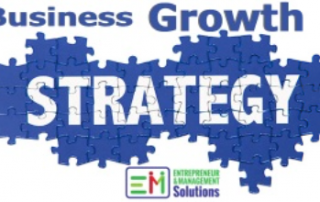Sean O’Sullivan – Founder of SOSventures
Sean O’Sullivan – Founder of SOSventures. He is a technology pioneer. Runs Avego, a world-leading transportation software company headquartered in Cork, and operating globally while investing millions in the startup business.
Innovation startup from every corner of the globe. Over the past 20years, they have invested in over 400 companies. The portfolio includes companies in global software, food technology, connected hardware and Biotechnology and transportation. 90% of the investment activity through our accelerator programs and related ecosystem investments.
This video is an extract from Khan Academy:
Business Growth Strategy IV – Process and Profit
We conclude this series this week with a look at two areas of business that are often ignored by entrepreneurs: the processes and the profits.
Most small businesses are started by one person or a small team. As the business grows, processes are generated on the fly and often made up when and where needed. This is great as it supports the entrepreneurial mindset and fast-growing nature of the business. But as things develop and other people join the team, they are left alone and often confused about what to do when and by whom. They refer things back to the original owners, who then just do things themselves, mostly because it will take too long to explain things to others and get them to do it, so they take it upon themselves to do it. Faster, easier and cheaper – Yes? Well actually NO.
Developing strategy for your internal processes is key to the development of any business from craft to enterprise. A clear set of processes that can be found and followed by anyone within the business and any new staff member, is key to growth. It also gives a sense of assurance to the business owners that things will be done and done according to the process.
Developing processes is also the key to creating internal models, frameworks and procedures that could be converted into sellable products in the future. A lot of what we coach our clients today started out as an internal process that developed into a workable model, workshop, coaching tool and online course.
The strategy around profit is just as important to the sustainability or your business. Turnover for any small business is the first measurement that we look at; but very soon, this needs to be expanded to include accounting items such as the cost of sales, expenses leading to gross and net profit. The big step for most business owners is to go from a cash business to one with proper accounting processes and reporting. It is also key to, as soon as possible separate the business money from personal money and then begin to manage the business based on profit, not turnover.
These and others we will unpack a bit more in the webinar on Wednesday. Join us HERE to be part of the live class or to watch the recorded version later.
The South African Breweries (SAB)
The South African Breweries (SAB) is a subsidiary of AB InBev. Founded in 1895, SAB is South Africa’s top brewer and leading distributor of beer.
For more than 120 years SAB has been an integral thread in the social fabric of our country and continues to play a crucial role in the national economy. The company operates seven breweries and 40 depots in South Africa with an annual brewing capacity of 3.1 billion litres. Its portfolio of beer brands meets the needs of a wide range of consumers and includes some of the country’s most popular beer brands namely Carling Black Label, Hansa Pilsener, Castle Lager, Castle Lite and Castle Milk Stout.
The movement towards ending the prevalence of youth unemployment in South Africa is currently underway and another organisation which has been aiding the country is The South African Breweries. The need to place the youth’s entrepreneurial spirit and creativity on display has been at an all-time high and SAB’s Kickstart Ignite programme is here to do just that.
SAB Kickstart is a programme which was developed in May 1995 as a poverty alleviation programme and subsequently evolved into 2 umbrella entities geared towards the development of youth entrepreneurship; these were KickStart Ignite and KickStart Boost. KickStart Ignite provides up-and-coming entrepreneurs, aged between 18 and 35 years, a foundation to begin their business through funding. The objective of KickStart Boost is to provide already established businesses assistance with expansion and support.
Kickstart Ignite holds a competition where budding entrepreneurs and innovators are invited to enter. Applications are opened from 4th September to 30th November.
For more information visit https://www.sabentrepreneurship.co.za/
The Strategy of People and Products: YES or NO?
On Monday we opened up a can of worms by looking at what growth strategies need to be implemented in a business for the people and products you manage.
This has created some debate with some of our clients and colleagues with many different opinions and ideas. As we add to this conversation, here is a 30-minute video of the webinar mast class on this topic for you to watch.
I would love to have your opinion and ideas: please comment or email us.
Service Industry Performance Measurement
| We continue discussing performance measurement and this week we look at service industry performance measurement.
It is quite difficult to measure performance management for service industries for several reasons: · Production and consumption of the service happen at the same time. · A service cannot be stored. It must be provided when the customer wants it. · Goods manufactured may be identical but the quality of service varies from service to service. The quality of a service can depend on several factors; i.e., talent, skill, passion for the job, work environment, disposition etc. This makes it difficult to measure the quality of a service. · A service has no physical features. Customers can pinpoint physical aspects and attributes of a product that they believe add value. For example the slick looks of a sports car; the curves and contours, the headlights, brakes, exhaust and engine sound. Fitzgerald and Moon came up with the Building Block Model as a framework for service companies. It helps in designing a system for performance evaluation. There are three blocks of this model; –dimensions, standards and rewards. Dimensions are aspects of performance which must be measured. Organisations need to identify performance measures using six dimensions, which are similar to the four aspects of the balanced scorecard. These are: 1. Financial Performance 2. Competitiveness 3. Quality 4. Resource Utilisation 5. Flexibility 6. Innovation Quality, resource utilisation, flexibility and innovation impact future results, whilst financial performance and competitiveness result from past decisions. Standards: Targets are then set for managers based on three measures: 1. Ownership –managers should believe in the targets. Participatory budgeting motivates managers to perform. 2. Achievability –targets should be challenging but also achievable. If too high, managers will be too motivated. Those responsible for results will always push for easier targets so there has to be a delicate balance. 3. Equity –standards throughout the whole organisation should be uniform. Managers or employees should not individually negotiate targets as those more persuasive will always end up having easy targets. Rewards Schemes: Performance can be linked to reward schemes by paying managers or employees bonuses if they meet the targets. The following principles apply: · Clarity –employees must understand how their performance is being measured. · Motivation –bonuses should be adequate enough to motivate staff to perform and reach the targets. They should be linked to performance so that they do not become an entitlement. · Controllability –managers’ performance should be measured within their locus of control.If they can’t control an aspect of company performance, then it will be unfair to use it to measure their performance. |



